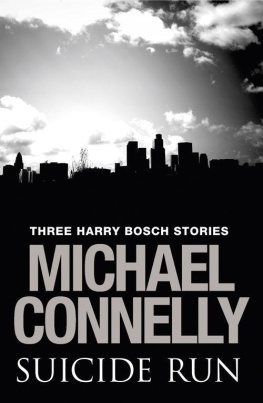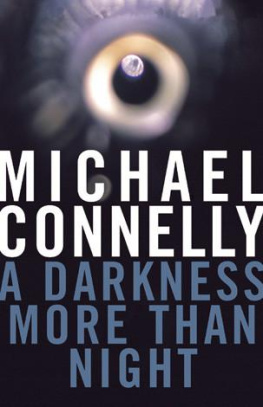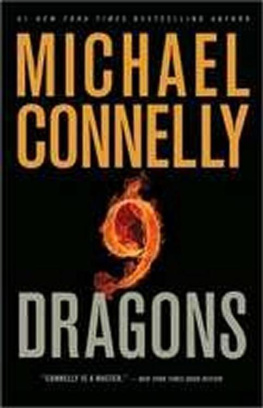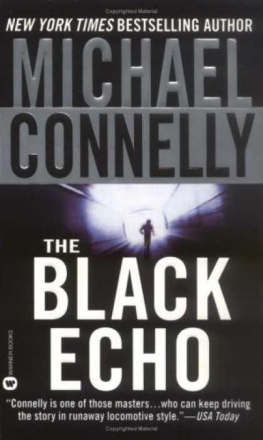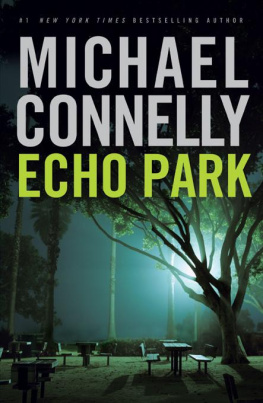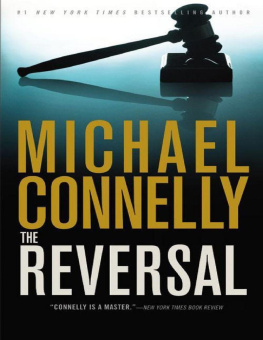Michael Connelly - City of Bones
Here you can read online Michael Connelly - City of Bones full text of the book (entire story) in english for free. Download pdf and epub, get meaning, cover and reviews about this ebook. year: 2006, publisher: Warner Books, genre: Detective and thriller. Description of the work, (preface) as well as reviews are available. Best literature library LitArk.com created for fans of good reading and offers a wide selection of genres:
Romance novel
Science fiction
Adventure
Detective
Science
History
Home and family
Prose
Art
Politics
Computer
Non-fiction
Religion
Business
Children
Humor
Choose a favorite category and find really read worthwhile books. Enjoy immersion in the world of imagination, feel the emotions of the characters or learn something new for yourself, make an fascinating discovery.
- Book:City of Bones
- Author:
- Publisher:Warner Books
- Genre:
- Year:2006
- Rating:5 / 5
- Favourites:Add to favourites
- Your mark:
- 100
- 1
- 2
- 3
- 4
- 5
City of Bones: summary, description and annotation
We offer to read an annotation, description, summary or preface (depends on what the author of the book "City of Bones" wrote himself). If you haven't found the necessary information about the book — write in the comments, we will try to find it.
City of Bones — read online for free the complete book (whole text) full work
Below is the text of the book, divided by pages. System saving the place of the last page read, allows you to conveniently read the book "City of Bones" online for free, without having to search again every time where you left off. Put a bookmark, and you can go to the page where you finished reading at any time.
Font size:
Interval:
Bookmark:
MICHAEL CONNELLY CITY OF BONES First published in Great Britain in 2002 by Orion This paperback edition published in 2002 by Orion Books Ltd, Orion House, 5 Upper St Martin's Lane, London WC2H 9EA Published by arrangement with Little, Brown and Company (Inc.), New York, NY, USA . Fifth impression 2002 Copyright Hieronymus, Inc. 2002
The old lady had changed her mind about dying but by then it was too late. She had dug her fingers into the paint and plaster of the nearby wall until most of her fingernails had broken off. Then she had gone for the neck, scrabbling to push the bloodied fingertips up and under the cord. She broke four toes kicking at the walls. She had tried so hard, shown such a desperate will to live, that it made Harry Bosch wonder what had happened before. Where was that determination and will and why had it deserted her until after she had put the extension cord noose around her neck and kicked over the chair? Why had it hidden from her? These were not official questions that would be raised in his death report. But they were the things Bosch couldn't avoid thinking about as he sat in his car outside the Splendid Age Retirement Home on Sunset Boulevard east of the Hollywood Freeway. It was 4:20 p.m. on the first day of the year. Bosch had drawn holiday call-out duty. The day more than half over and that duty consisted of two suicide runs one a gunshot, the other the hanging. Both victims were women. In both cases there was evidence of depression and desperation. Isolation. New Year's Day was always a big day for suicides. While most people greeted the day with a sense of hope and renewal, there were those who saw it as a good day to die, some like the old lady not realizing their mistake until it was too late. Bosch looked up through the windshield and watched as the latest victim's body, on a wheeled stretcher and covered in a green blanket, was loaded into the coroner's blue van. He saw there was one other occupied stretcher in the van and knew it was from the first suicide a thirty-four-year-old actress who had shot herself while parked at a Hollywood overlook on Mulholland Drive. Bosch and the body crew had followed one case to the other. Bosch's cell phone chirped and he welcomed the intrusion into his thoughts on small deaths. It was Mankiewicz, the watch sergeant at the Hollywood Division of the Los Angeles Police Department. "You finished with that yet?" "I'm about to clear." "Anything?" "A changed-my-mind suicide. You got something else?" "Yeah. And I didn't think I should go out on the radio with it. Must be a slow day for the media getting more what's-happening calls from reporters than I am getting service calls from citizens. They all want to do something on the first one, the actress on Mulholland. You know, a death-of-a-Hollywood-dream story. And they'd probably jump all over this latest call, too." "Yeah, what is it?" "A citizen up in Laurel Canyon. On Wonderland. He just called up and said his dog came back from a run in the woods with a bone in its mouth. The guy says it's human an arm bone from a kid." Bosch almost groaned. There were four or five call outs like this a year. Hysteria always followed by simple expla- nation: animal bones. Through the windshield he saluted the two body movers from the coroner's office as they headed to the front doors of the van. "I know what you're thinking, Harry. Not another bone run. You've done it a hundred times and it's always the same thing. Coyote, deer, whatever. But listen, this guy with the dog, he's an MD. And he says there's no doubt. It's a humerus. That's the upper arm bone. He says it's a child, Harry. And then, get this. He said ..." There was silence while Mankiewicz apparently looked for his notes. Bosch watched the coroner's blue van pull off into traffic. When Mankiewicz came back he was obviously reading. "The bone's got a fracture clearly visible just above the medial epicondyle, whatever that is." Bosch's jaw tightened. He felt a slight tickle of electric current go down the back of his neck. "That's off my notes, I don't know if I am saying it right. The point is, this doctor says it was just a kid, Harry. So could you humor us and go check out this humerus?" Bosch didn't respond. "Sorry, had to get that in." "Yeah, that was funny, Mank. What's the address?" Mankiewicz gave it to him and told him he had already dispatched a patrol team. "You were right to keep it off the air. Let's try to keep it that way." Mankiewicz said he would. Bosch closed his phone and started the car. He glanced over at the entrance to the retirement home before pulling away from the curb. There nothing about it that looked splendid to him. The woman who had hung herself in the closet of her tiny bedroom had no next of kin, according to the operators of the home. In death, she would be treated the way she had been in life, left alone and forgotten. Bosch pulled away from the curb and headed toward Laurel Canyon. Bosch listened to the Lakers game on the car radio while he made his way into the canyon and then up Lookout Mountain to Wonderland Avenue. He wasn't a religious follower of professional basketball but wanted to get a sense of the situation in case he needed his partner, Jerry Edgar. Bosch was working alone because Edgar had lucked into a pair of choice seats to the game. Bosch had agreed to handle the call outs and to not bother Edgar unless a homicide or something Bosch couldn't handle alone came up. Bosch was alone also because the third member of his team, Kizmin Rider, had been promoted nearly a year earlier to Robbery-Homicide Division and still had not been replaced. It was early third quarter, and the game with the Trail Blazers was tied. While Bosch wasn't a hardcore fan he knew enough from Edgar's constant talking about the game and begging to be left free of call-out duty that it was an important matchup with one of the Los Angeles team's top rivals. He decided not to page Edgar until he had gotten to the scene and assessed the situation. He turned the radio off when he started losing the AM station in the canyon. The drive up was steep. Laurel Canyon was a cut in the Santa Monica Mountains. The tributary roads ranged up toward the crest of the mountains. Wonderland Avenue dead-ended in a remote spot where the half-million-dollar homes were surrounded by heavily wooded and steep terrain. Bosch instinctively knew that searching for bones in the area would be a logistical nightmare. He pulled to a stop behind a patrol car already at the address Mankiewicz had provided and checked his watch. It was 4:38, and he wrote it down on a fresh page of his legal pad. He figured he had less than an hour of daylight left. A patrol officer he didn't recognize answered his knock. Her nameplate said Brasher. She led him back through the house to a home office where her partner, a cop whom Bosch recognized and knew was named Edgewood, was talking to a white-haired man who sat behind a cluttered desk. There was a shoe box with the top off on the desk. Bosch stepped forward and introduced himself. The white-haired man said he was Dr. Paul Guyot, a general practitioner. Leaning forward Bosch could see that the shoe box contained the bone that had drawn them all together. It was dark brown and looked like a gnarled piece of driftwood. He could also see a dog lying on the floor next to the doctor's desk chair. It was a large dog with a yellow coat. "So this is it," Bosch said, looking back down into the box. "Yes, Detective, that's your bone," Guyot said. "And as you can see ..." He reached to a shelf behind the desk and pulled down a heavy copy of Gray's Anatomy. He opened it to a previously marked spot. Bosch noticed he was wearing latex gloves. The page showed an illustration of a bone, anterior and posterior views. In the corner of the page was a small sketch of a skeleton with the humerus bone of both arms highlighted. "The humerus," Guyot said, tapping the page. "And then we have the recovered specimen." He reached into the shoe box and gently lifted the bone. Holding it above the book's illustration he went through a point-by-point comparison. "Medial epicondyle, trochlea, greater and lesser tubercle" he said. "It's all there. And I was just telling these two officers, I know my bones even without the book. This bone is human, Detective. There's no doubt." Bosch looked at Guyot's face. There was a slight quiver, perhaps the first showing of the tremors of Parkinson's. "Are you retired, Doctor?" "Yes, but it doesn't mean I don't know a bone when I see "I'm not challenging you, Dr. Guyot." Bosch tried to smile. "You say it is human, I believe it. Okay? I'm just trying to get the lay of the land here. You can put that back into the box now if you want." Guyot replaced the bone in the shoe box. "What's your dog's name?" "Calamity." Bosch looked down at the dog. It appeared to be sleeping. "When she was a pup she was a lot of trouble." Bosch nodded. "So, if you don't mind telling it again, tell me what happened today." Guyot reached down and ruffled the dog's collar. The dog looked up at him for a moment and then put its head back down and closed its eyes. "I took Calamity out for her afternoon walk. Usually when I get up to the circle I take her off the leash and let her run up into the woods. She likes it." "What kind of dog is she?" Bosch asked. "Yellow Lab," Brasher answered quickly from behind him. Bosch turned and looked at her. She realized she had made a mistake by intruding and nodded and stepped back toward the door of the room where her partner was. "You guys can clear if you have other calls," Bosch said. "I can take it from here." Edgewood nodded and signaled his partner out. "Thank you, Doctor," he said as he went. "Don't mention it." Bosch thought of something. "Hey, guys?" Edgewood and Brasher turned back. "Let's keep this off the air, okay?" "You got it," said Brasher, her eyes holding on Bosch's until he looked away. After the officers left, Bosch looked back at the doctor and noticed that the facial tremor was slightly more pronounced now. "They didn't believe me at first either," he said. "It's just that we get a lot of calls like this. But I believe you, Doctor, so why don't you continue with the story?" Guyot nodded. "Well, I was up on the circle and I took off the leash. She went up into the woods like she likes to do. She's well trained. When I whistle she comes back. Trouble is, I can't whistle very loud anymore. So if she goes where she can't hear me, then I have to wait, you see." "What happened today when she found the bone?" "I whistled and she didn't come back." "So she was pretty far up there." "Yes, exactly. I waited. I whistled a few more times, and then finally she came down out of the woods next to Mr. Ulrich's house. She had the bone. In her mouth. At first I thought it was a stick, you see, and that she wanted to play fetch with it. But as she came to me I recognized the shape. I took it from her had a fight over that and then I called you people after I examined it here and was sure." You people, Bosch thought. It was always said like that, as if the police were another species. The blue species which carried armor that the horrors of the world could not pierce. "When you called you told the sergeant that the bone had a fracture." "Absolutely." Guyot picked up the bone again, handling it gently. He turned it and ran his finger along a vertical striation along the bone's surface. "That's a break line, Detective. It's a healed fracture." "Okay." Bosch pointed to the box, and the doctor returned the bone. "Doctor, do you mind putting your dog on a leash and taking a walk up to the circle with me?" "Not at all. I just need to change my shoes." "I need to change, too. How about if I meet you out front?" "Right away." "I'm going to take this now." Bosch put the top back on the shoe box and then carried it with two hands, making sure not to turn the box or jostle its contents in any way. Outside, Bosch noticed the patrol car was still in front of the house. The two officers sat inside it, apparently writing out reports. He went to his car and placed the shoe box on the front passenger seat. Since he had been on call out he had not dressed in a suit. He had on a sport coat with blue jeans and a white oxford shirt. He stripped off his coat, folded it inside out and put it on the backseat. He noticed that the trigger from the weapon he kept holstered on his hip had worn a hole in the lining and the jacket wasn't even a year old. Soon it would work its way into the pocket and then all the way through. More often than not he wore out his coats from the inside. He took his shirt off next, revealing a white T-shirt beneath. He then opened the trunk to get out the pair of work boots from his crime scene equipment box. As he leaned against the rear bumper and changed his shoes he saw Brasher get out of the patrol car and come back toward him. "So it looks legit, huh?" "Think so. Somebody at the ME's office will have to confirm, though." "You going to go up and look?" "I'm going to try to. Not much light left, though. Probably be back out here tomorrow." "By the way, I'm Julia Brasher. I'm new in the division." "Harry Bosch." "I know. I've heard of you." "I deny everything." She smiled at the line and put her hand out but Bosch was right in the middle of tying one of the boots. He stopped and shook her hand. "Sorry," she said. "My timing is off today." "Don't worry about it." He finished tying the boot and stood up off the bumper. "When I blurted out the answer in there, about the dog, I immediately realized you were trying to establish a rapport with the doctor. That was wrong. I'm sorry." Bosch studied her for a moment. She was mid-thirties with dark hair in a tight braid that left a short tail going over the back of her collar. Her eyes were dark brown. He guessed she liked the outdoors. Her skin had an even tan. "Like I said, don't worry about it." "You're alone?" Bosch hesitated. "My partner's working on something else while I check this out." He saw the doctor coming out the front door of the house with the dog on a leash. He decided not to get out his crime scene jumpsuit and put it on. He glanced over at Julia Brasher, who was now watching the approaching dog. "You guys don't have calls?" "No, it's slow." Bosch looked down at the MagLite in his equipment box. He looked at her and then reached into the trunk and grabbed an oil rag, which he threw over the flashlight. He took out a roll of yellow crime scene tape and the Polaroid camera, then closed the trunk and turned to Brasher. "Then do you mind if I borrow your Mag? I, uh, forgot mine." "No problem." She slid the flashlight out of the ring on her equipment belt and handed it to him. The doctor and his dog came up then. "Ready" "Okay, Doctor, I want you to take us up to the spot where you let the dog go and we'll see where she goes." "I'm not sure you'll be able to stay with her." "I'll worry about that, Doctor." "This way then." They walked up the incline toward the small turnaround circle where Wonderland reached a dead end. Brasher made a hand signal to her partner in the car and walked along with them. "You know, we had a little excitement up this way a few years ago," Guyot said. "A man was followed home from the Hollywood Bowl and then killed in a robbery." "I remember," Bosch said. He knew the investigation was still open but didn't mention it. It wasn't his case. Dr. Guyot walked with a strong step that belied his age and apparent condition. He let the dog set the pace and soon moved several paces ahead of Bosch and Brasher. "So where were you before?" Bosch asked Brasher. "What do you mean?" "You said you were new in Hollywood Division. What about before?" "Oh. The academy." He was surprised. He looked over at her, thinking he might need to reassess his age estimate. She nodded and said, "I know, I'm old." Bosch got embarrassed. "No, I wasn't saying that I just thought that you had been somewhere else. You don't seem like a rookie." "I didn't go in until I was thirty-four." "Really? Wow." "Yeah. Got the bug a little late." "What were you doing before?" "Oh, a bunch of different things. Travel mostly. Took me a while to figure out what I wanted to do. And you want to know what I want to do the most?" Bosch looked at her. "What?" "What you do. Homicide." He didn't know what to say, whether to encourage her or dissuade her. "Well, good luck," he said. "I mean, don't you just find it to be the most fulfilling job ever? Look at what you do, you take the most evil people out of the mix." "The mix?" "Society." "Yeah, I guess so. When we get lucky." They caught up to Dr. Guyot, who had stopped with the dog at the turnaround circle. "This the place?" "Yes. I let her go here. She went up through there." He pointed to an empty and overgrown lot that started level with the street but then quickly rose into a steep incline toward the crest of the hills. There was a large concrete drainage culvert, which explained why the lot had never been built on. It was city property, used to funnel storm water runoff away from the homes on the street. Many of the streets in the canyon were former creek and river beds. When it rained they would return to their original purpose if not for the drainage system. "Are you going up there?" the doctor asked. "I'm going to try." "I'll go with you," Brasher said. Bosch looked at her and then turned at the sound of a car. It was the patrol car. It pulled up and Edgewood put down the window. "We got a hot shot, partner. Double D." He nodded toward the empty passenger seat. Brasher frowned and looked at Bosch. "I hate domestic disputes." Bosch smiled. He hated them too, especially when they turned into homicides. "Sorry about that." "Well, maybe next time." She started around the front of the car.. "Here," Bosch said, holding out the MagLite. "I've got an extra in the car," she said. "You can just get that back to me." "You sure?" He was tempted to ask for a phone number but didn't. "I'm sure. Good luck." "You too. Be careful." She smiled at him and then hurried around the front of the car. She got in and the car pulled away. Bosch turned his attention back to Guyot and the dog. "An attractive woman," Guyot said. Bosch ignored it, wondering if the doctor had made the comment based on seeing Bosch's reaction to Brasher. He hoped he hadn't been that obvious. "Okay, Doctor," he said, "let the dog go and I'll try to keep up." Guyot unhooked the leash while patting the dog's chest. "Go get the bone, girl. Get a bone! Go!" The dog took off into the lot and was gone from sight before Bosch had taken a step. He almost laughed. "Well, I guess you were right about that, Doc." He turned to make sure the patrol car was gone and Brasher hadn't seen the dog take off. "You want me to whistle?" "Nah. I'll just go in and take a look around, see if I can catch up to her." He turned the flashlight on. The woods were dark long before the sun disappeared. The overhead canopy created by a tall stand of Monterey pines blocked out most of the light before it got to the ground. Bosch used the flashlight and made his way up the hillside in the direction in which he had heard the dog moving through the brush. It was slow moving and hard work. The ground contained a foot-thick layer of pine needles that gave way often beneath Bosch's boots as he tried for purchase on the incline. Soon his hands were sticky with sap from grabbing branches to keep himself upright. It took him nearly ten minutes to go thirty yards up the hillside. Then the ground started to level off and the light got better as the tall trees thinned. Bosch looked around for the dog but didn't see her. He called down to the street, though he could no longer see it or Dr. Guyot. "Dr. Guyot? Can you hear me?" "Yes, I hear you." "Whistle for your dog." He then heard a three-part whistle. It was distinct but very low, having the same trouble getting through the trees and underbrush as the sunlight had. Bosch tried to repeat it and after a few tries thought he had it right. But the dog didn't come. Bosch pressed on, staying on the level ground because he believed that if someone was going to bury or abandon a body, then it would be done on even ground as opposed to the steep slope. Following a path of least resistance, he moved into a stand of acacia trees. And here he immediately came upon a spot where the earth had recently been disturbed. It had been overturned, as if a tool or an animal had been randomly rooting in the soil. He used his foot to push some of the dirt and twigs aside and then realized they weren't twigs. He dropped to his knees and used the light to study the short brown bones scattered over a square foot of dirt. He believed he was looking at the disjointed fingers of a hand. A small hand. A child's hand. Bosch stood up. He realized that his interest in Julia Brasher had distracted him. He had brought no means with him for collecting the bones. Picking them up and carrying them down the hill would violate every tenet of evidence collection. The Polaroid camera hung on a shoelace around his neck. He raised it now and took a close-up shot of the bones. He then stepped back and took a wider shot of the spot beneath the acacia trees. In the distance he heard Dr. Guyot's weak whistle. Bosch went to work with the yellow plastic crime scene tape. He tied a short length of it around the trunk of one of the acacia trees and then strung a boundary around the trees. Thinking about how he would work the case the following morning, he stepped out of the cover of the acacia trees and looked for something to use as an aerial marker. He found a nearby growth of sagebrush. He wrapped the crime scene tape around and over the top of the bush several times. When he was finished it was almost dark. He took another cursory look around the area but knew that a flashlight search was useless and the ground would need to be exhaustively covered in the morning. Using a small penknife attached to his key chain, he began cutting four-foot lengths of the crime scene tape off the roll. Making his way back down the hill, he tied the strips off at intervals on tree branches and bushes. He heard voices as he got closer to the street and used them to maintain his direction. At one point on the incline the soft ground suddenly gave way and he fell, tumbling hard into the base of a pine tree. The tree impacted his midsection, tearing his shirt and badly scratching his side. Bosch didn't move for several seconds. He thought he might have cracked his ribs on the right side. His breathing was difficult and painful. He groaned loudly and slowly pulled himself up on the tree trunk so that he could continue to follow the voices. He soon came back down into the street where Dr. Guyot was waiting with his dog and another man. The two men looked shocked when they saw the blood on Bosch's shirt. "Oh my, what happened?" Guyot cried out. "Nothing. I fell." "Your shirt is ... there's blood!" "Comes with the job." "Let me look at your chest." The doctor moved in to look but Bosch held his hands up. "I'm okay. Who is this?" The other man answered. "I'm Victor Ulrich. I live there." He pointed to the house next to the lot. Bosch nodded. "I just came out to see what was going on." "Well, nothing is going on at the moment. But there is a crime scene up there. Or there will be. We probably won't be back to work it until tomorrow morning. But I need both you men to keep clear of it and not to tell anybody about this. All right?" Both of the neighbors nodded. "And Doctor, don't let your dog off the leash for a few days. I need to go back down to my car to make a phone call. Mr. Ulrich, I am sure we will want to talk to you tomorrow. Will you be around?" "Sure. Anytime. I work at home." "Doing what?" "Writing." "Okay. We'll see you tomorrow." Bosch headed back down the street with Guyot and the dog. "You really need me to take a look at your injury," Guyot insisted. "It'll be fine." Bosch glanced to his left and thought he saw a curtain quickly close behind a window of the house they were passing. "The way you are holding yourself when you walk you've damaged a rib," Guyot said. "Maybe you've broken it. Maybe more than one." Bosch thought of the small, thin bones he had just seen beneath the acacia trees. "There's nothing you can do for a rib, broken or not," he said. "I can tape it. You'll breathe a hell of a lot easier. I can also take care of that wound." Bosch relented.
Next pageFont size:
Interval:
Bookmark:
Similar books «City of Bones»
Look at similar books to City of Bones. We have selected literature similar in name and meaning in the hope of providing readers with more options to find new, interesting, not yet read works.
Discussion, reviews of the book City of Bones and just readers' own opinions. Leave your comments, write what you think about the work, its meaning or the main characters. Specify what exactly you liked and what you didn't like, and why you think so.

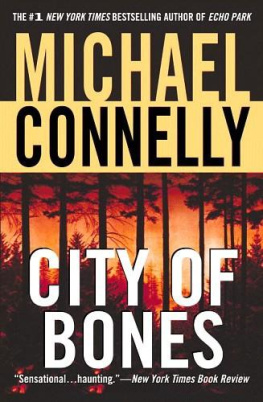
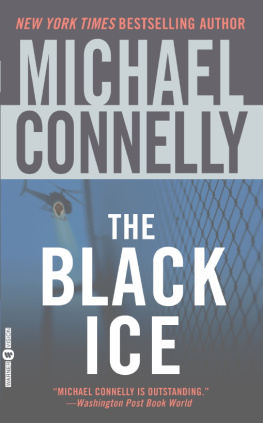
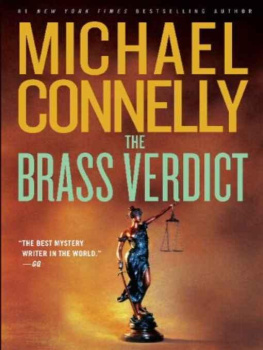
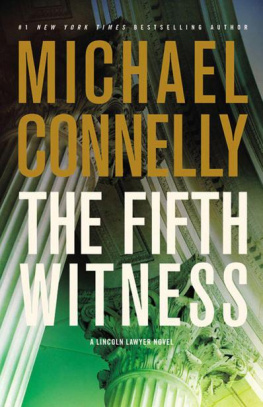
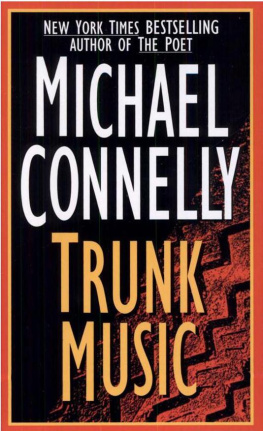
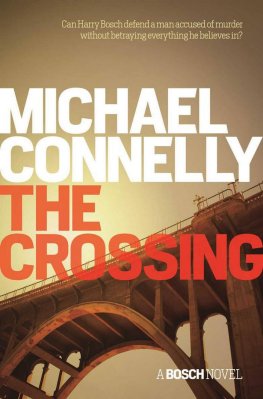
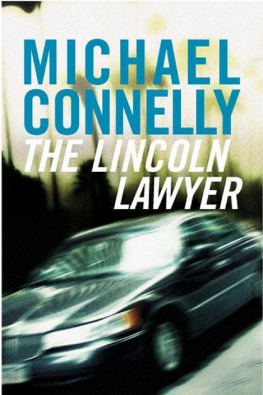
![Majkl Konnelli - The Night Fire [Harry Bosch - 22]](/uploads/posts/book/873181/thumbs/majkl-konnelli-the-night-fire-harry-bosch-22.jpg)

